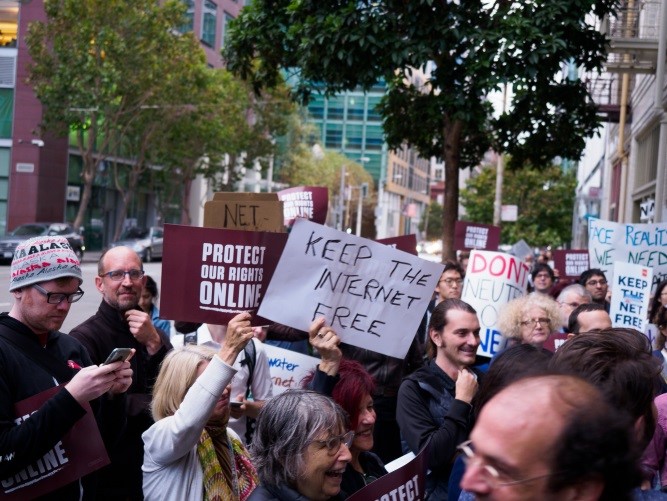How Repealing Net Neutrality Will Affect Students
December 12, 2017
Net neutrality is a principle that prevents service providers from manipulating the flow of content on the Internet. In other words, it provides us with the right to communicate freely through an open network. In December of 2017, the Federal Communications Commission will be proposing the full repeal of Net Neutrality regulations. If the proposal passes, broadband companies such as AT&T or Verizon will be able to charge service providing companies and internet users with set fees that can provide better access to certain domains. Consequently, Internet traffic will be noticeably slower and more content will be blocked.
If these changes occur, schools throughout the country will experience major drawbacks. According to a study provided by the Learning Education Innovation Network, only 43% of surveyed school officials stated that their district only has one available internet provider. When Net Neutrality is removed, school districts will lose internet stability, making it more difficult for students and teachers to access educational resources.
The micromanagement of the Internet by service companies can also have significant implications regarding the American quality of education. Smaller online organizations can be at risk of losing connection with its consumers. Access to educational resources and startups can be limited, interfering with the enhancement of innovation.
The rollback of neutrality won’t affect just general education, but also the realm of higher education. In a modern world, college students are highly dependent on the Web as a form of communication. Moreover, a majority of research by students is conducted via the Internet. In 2011, Pew Research Center reported that 95% of undergraduate students and 93% of graduate students are broadband users. As a result, students will find it increasingly difficult to conquer this critical stage of their lives.
The concept of Net Neutrality must be preserved to keep Internet use impartial. The capitalization of a platform that should be provided equitably is unjust and uneconomical. Far too many people, especially students, teachers, and professors, will be impacted by this change. It is time for our country to consider the ramifications that come with abolishing Net Neutrality.
Feel free to visit the following link to sign the petition to save net neutrality.



